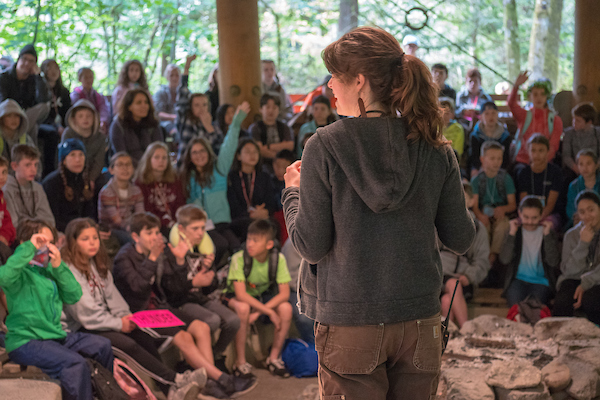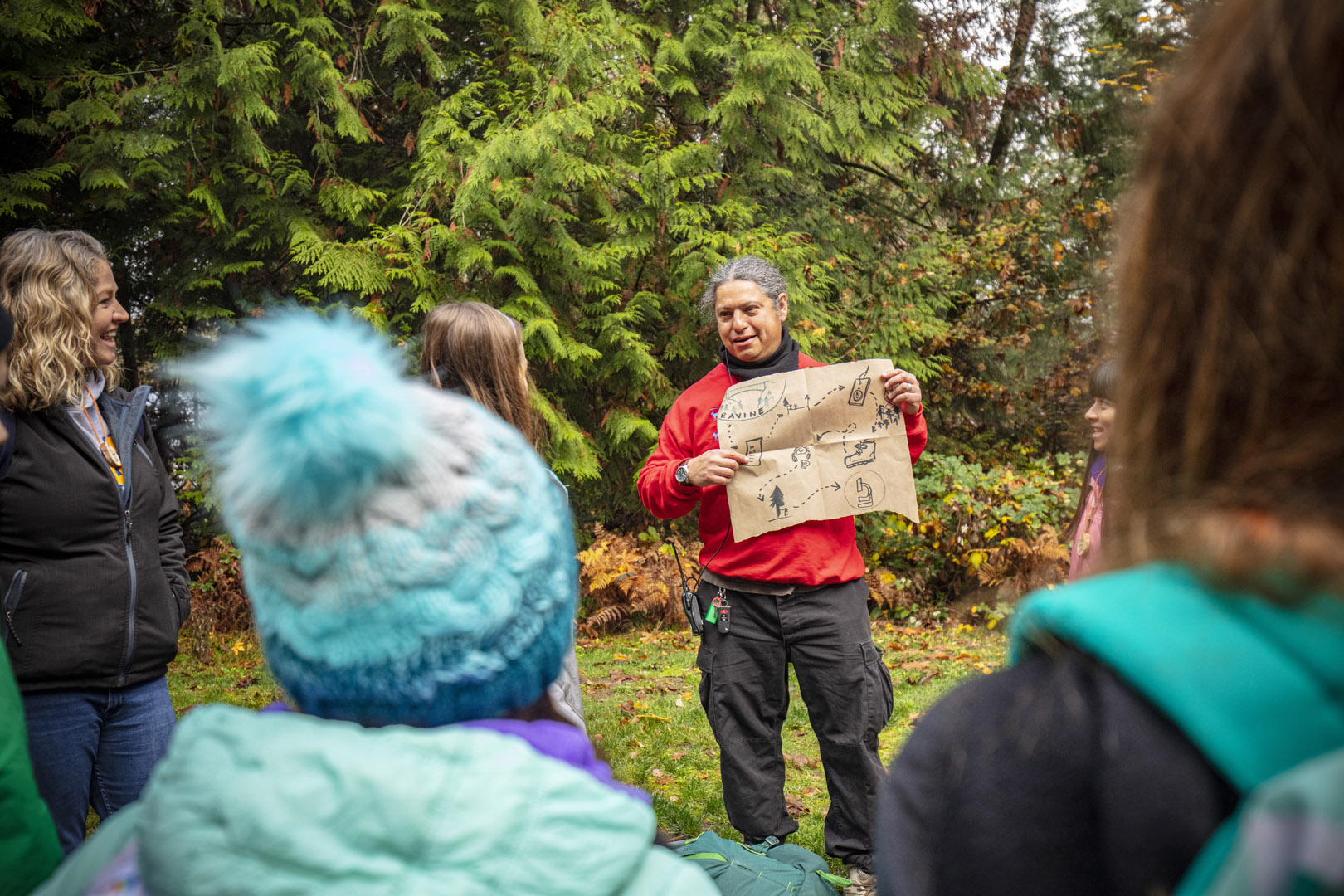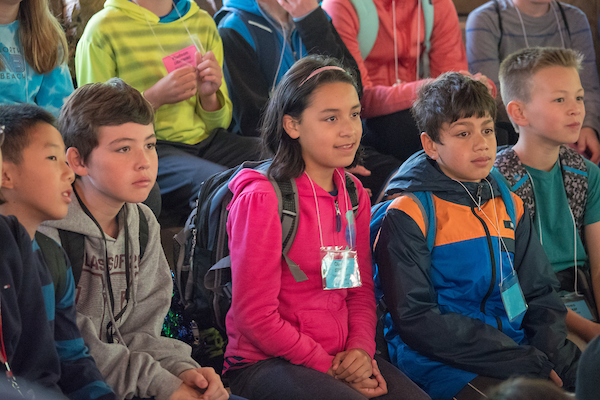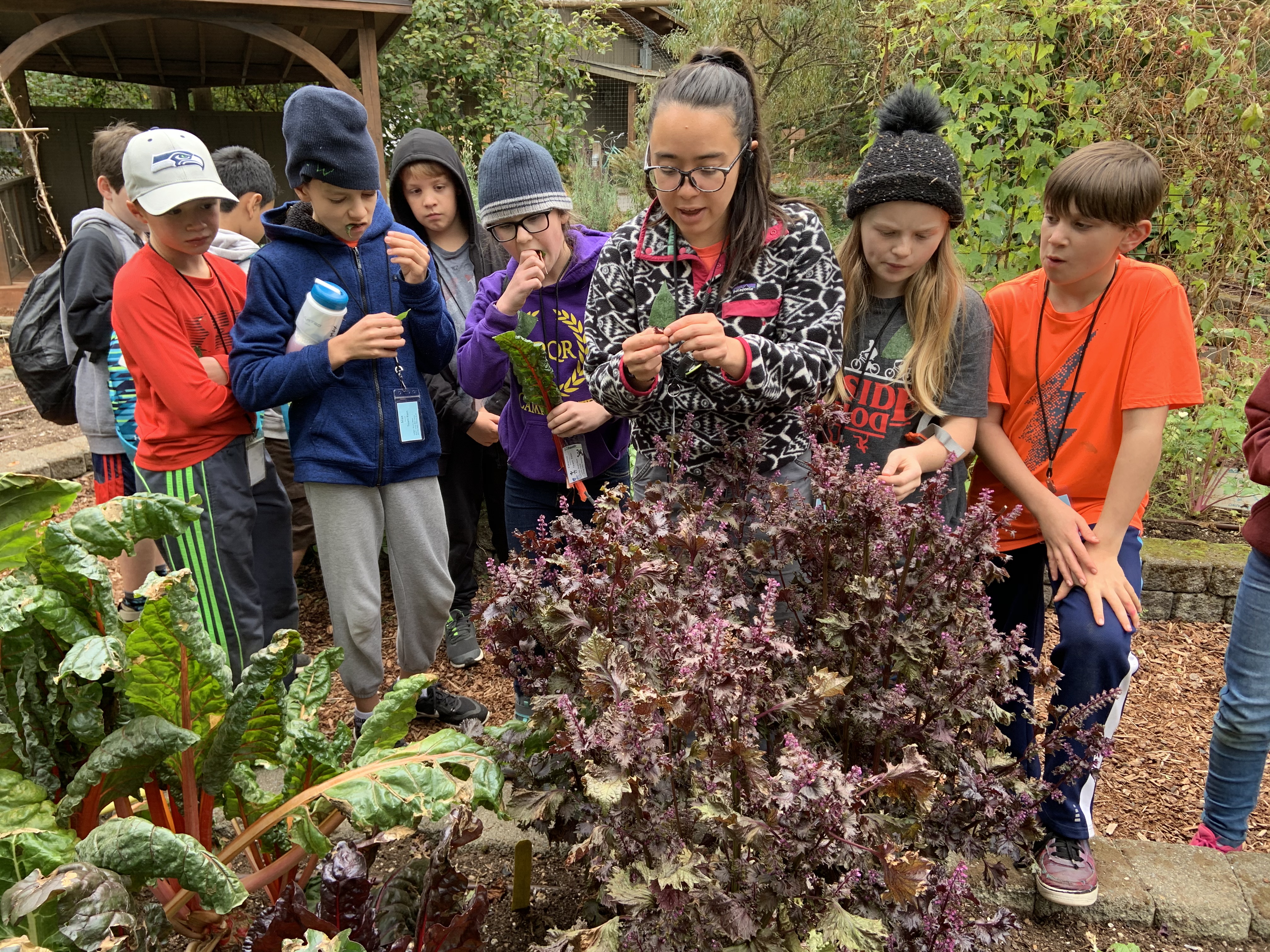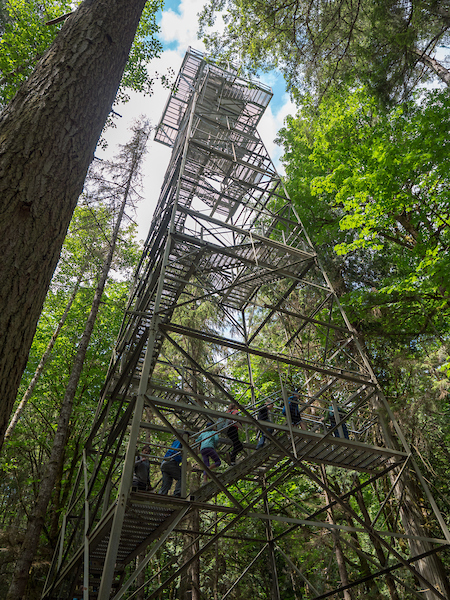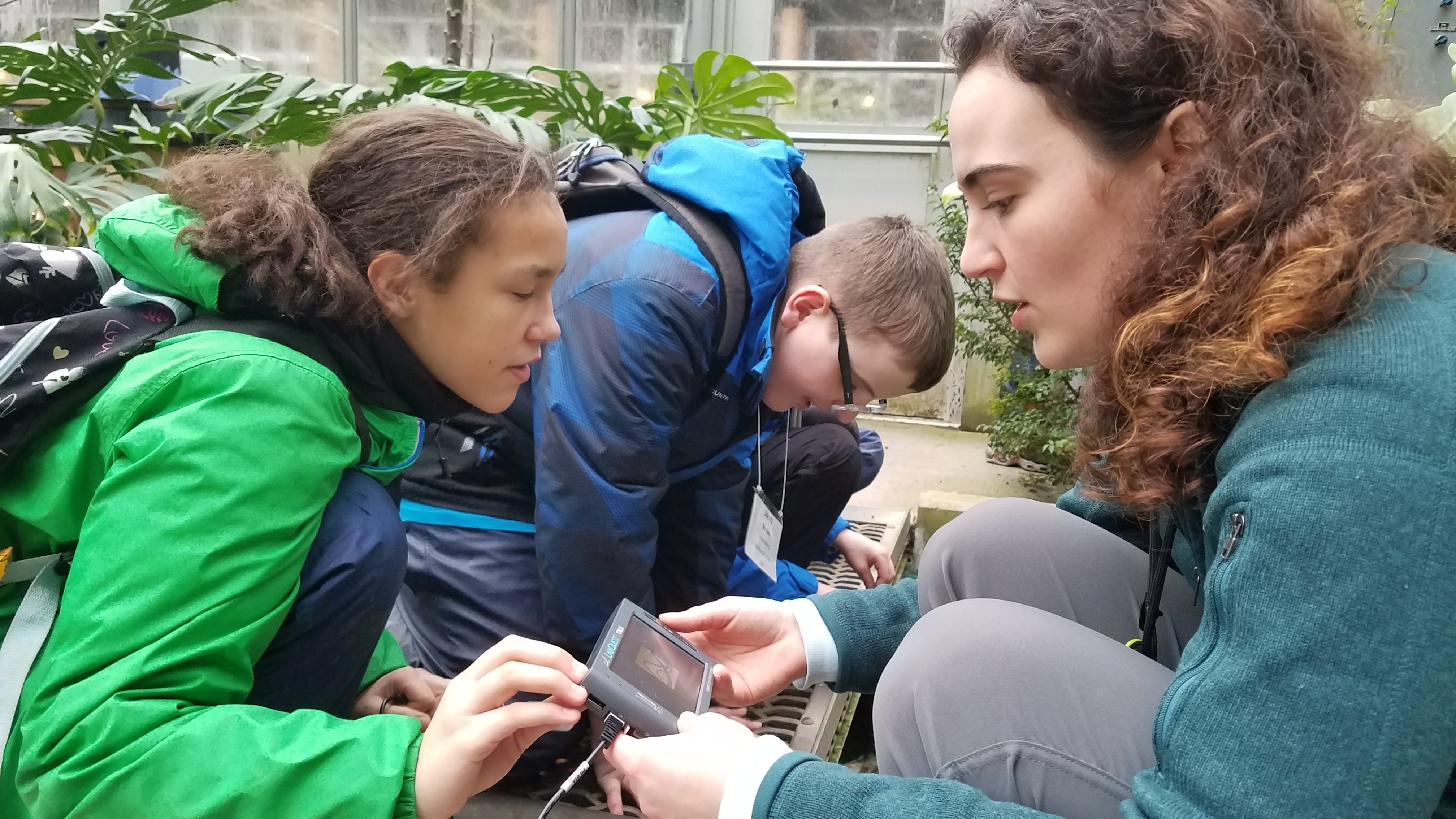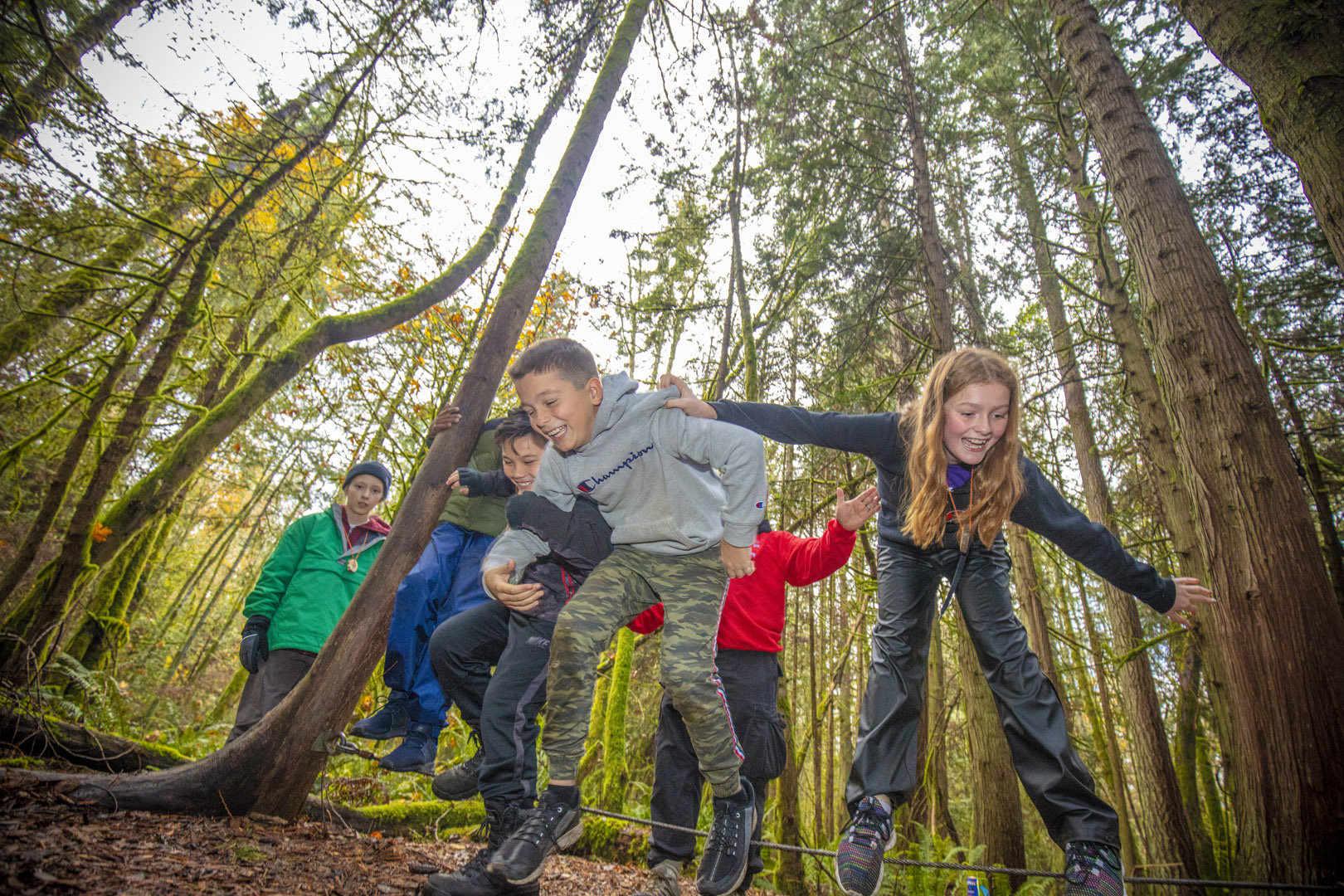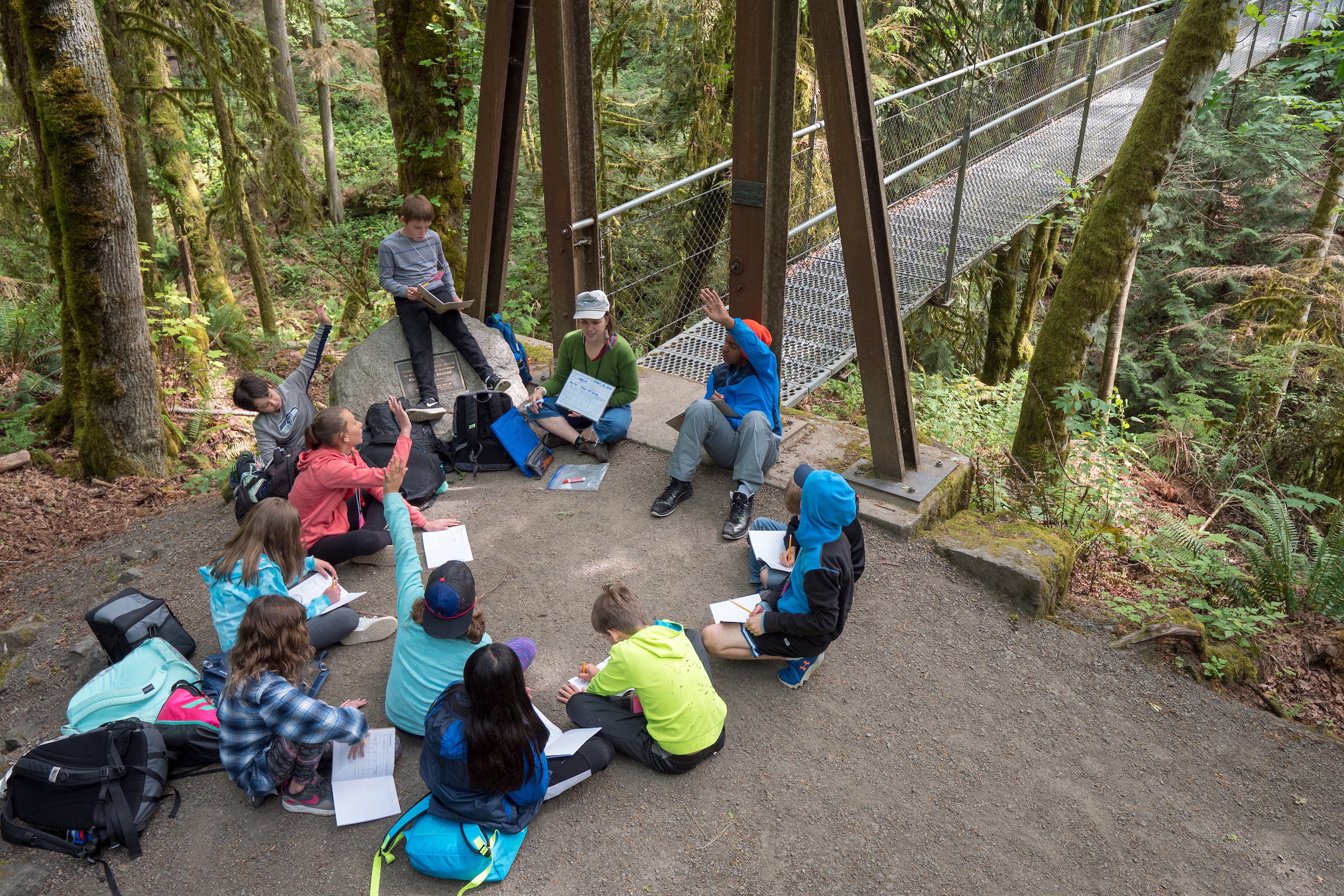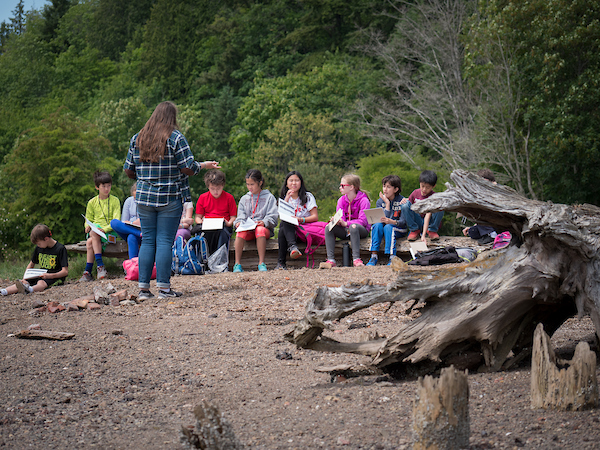Launched in 2017, Engaging Across Boundaries (EAB) is an initiative created within the SOP program as a result of our increased prioritization of JEDI. We leverage the unique opportunity we have to bring schools from different cultural, socioeconomic, and racial backgrounds together for several shared experiences (meals, group games, etc) during their four days at IslandWood. As students participate in EAB, they engage with students they may not otherwise have the opportunity to connect with and further develop their communication, perspective-taking, and collaborative problem-solving skills. EAB allows students to learn from each other in ways that go beyond the classroom and creates learning that comes from both directions, opening the door for a better understanding of each student’s reality.

